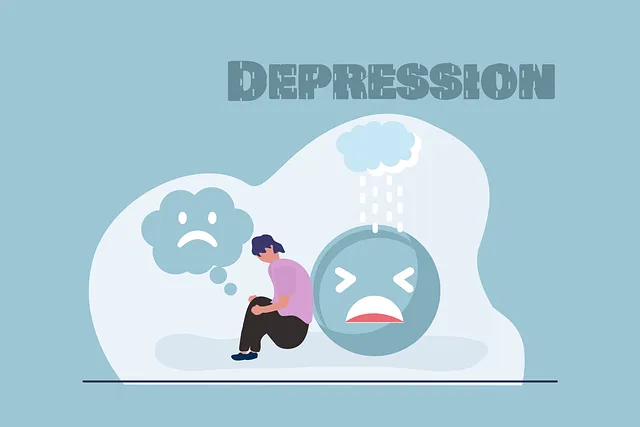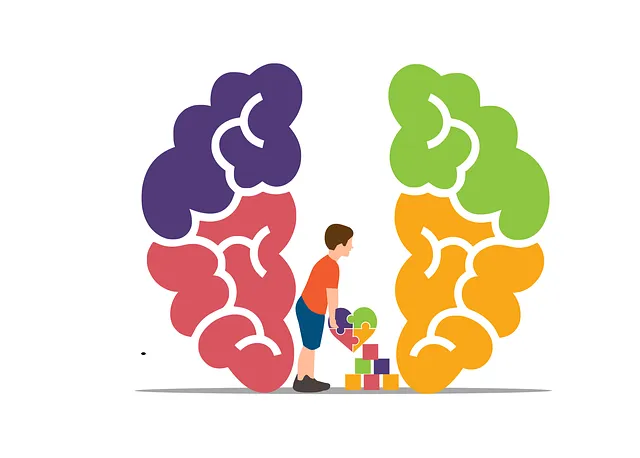The Kaiser Permanente behavioral health center in Broomfield uses RFM (Risk, Frequency, Motivation) analysis for personalized resilience interventions, identifying diverse risk levels and motivations. Their Trauma Support Services promote sustainable self-care practices, aligned with holistic wellness philosophy. Resilience exercises tailored to individual needs enhance mental well-being through evidence-based methods like cognitive behavioral therapy and mindfulness training. Regular evaluations ensure support for each participant's emotional intelligence and positive mindset, leading to improved coping mechanisms, increased well-being, and enhanced mental health outcomes. Future plans include integrating technology for data-driven personalization and advanced skill development for professionals.
“At the Kaiser Permanente Behavioral Health Center Broomfield, implementing RFM (Resilience, Flexibility, and Mastery) principles has emerged as a powerful tool in enhancing patient mental well-being. This article explores the transformative impact of resilience-building exercises within this healthcare setting. We delve into how structured programs foster adaptability and coping strategies, benefiting patients’ overall health. Through examining successful implementation strategies and real-world outcomes, we uncover best practices to guide future improvements at the center.”
- Understanding RFM and Its Significance at Kaiser Permanente Behavioral Health Center Broomfield
- The Role of Resilience Building Exercises in Mental Well-being
- Strategies for Effective Implementation at the Center
- Benefits and Real-life Impact on Patients
- Best Practices and Future Directions for Continuous Improvement
Understanding RFM and Its Significance at Kaiser Permanente Behavioral Health Center Broomfield

At Kaiser Permanente Behavioral Health Center Broomfield, understanding RFM (Risk, Frequency, and Motivation) is key to fostering resilience through targeted interventions. RFM analysis helps identify individuals at varying levels of risk, enabling tailored support for those who need it most. By assessing the frequency of engagement in self-care practices and the underlying motivations driving behavioral changes, the center can offer personalized Trauma Support Services that resonate with each patient’s unique journey.
This approach aligns perfectly with Kaiser Permanente’s commitment to holistic wellness and community outreach program implementation. Recognizing that resilience is not just about overcoming adversity but also about adopting sustainable self-care practices, the center leverages RFM analysis to empower individuals in navigating life’s challenges. Through this method, Kaiser Permanente Behavioral Health Center Broomfield not only addresses immediate needs but also fosters long-term behavioral shifts, contributing to a more resilient and thriving community.
The Role of Resilience Building Exercises in Mental Well-being

Resilience building exercises play a pivotal role in enhancing mental well-being, especially in today’s fast-paced and often stressful world. These exercises, tailored to meet individual needs, empower individuals to navigate challenges with greater ease and flexibility. The Kaiser Permanente behavioral health center Broomfield, for instance, has recognized the significance of such initiatives, integrating them into their comprehensive healthcare services to promote holistic healing.
Through cultural sensitivity in mental healthcare practice, these resilience-focused programs cater to diverse populations, addressing unique barriers and enhancing accessibility. Public awareness campaigns development and mental wellness podcast series production are additional strategies that contribute to broader community engagement, fostering open conversations about mental health and providing valuable resources for those seeking support.
Strategies for Effective Implementation at the Center

At the Kaiser Permanente behavioral health center Broomfield, strategies for effective implementation of RFM and resilience building exercises focus on creating a safe and supportive environment. This involves fostering open communication among participants, ensuring confidentiality to encourage vulnerability, and tailoring activities to cater to diverse needs. By integrating evidence-based practices such as cognitive behavioral therapy techniques, mindfulness training, and self-awareness exercises, the center aims to empower individuals with effective coping mechanisms.
The program incorporates various initiatives like group discussions, interactive workshops, and personalized coaching sessions to enhance self-esteem improvement and stress management skills. These strategies are meticulously designed to promote resilience by helping individuals navigate challenges, build emotional intelligence, and develop a positive mindset. Through regular evaluations and adjustments, the center ensures that each participant receives tailored support, ultimately contributing to their overall well-being.
Benefits and Real-life Impact on Patients

At the Kaiser Permanente behavioral health center Broomfield, resilience building exercises through techniques like RFM (Recovery Focused Motivation) offer profound benefits to patients. These evidence-based practices empower individuals to develop emotional intelligence, enhancing their ability to navigate life’s challenges with greater ease. By fostering a deeper understanding of their emotions and triggers, patients gain valuable tools for anxiety relief, enabling them to manage stress more effectively.
The real-life impact is transformative. Participants often report improved self-care routine development for better mental health. These exercises encourage individuals to cultivate a sense of inner strength and resilience, which translates into enhanced coping mechanisms in their daily lives. As a result, patients experience improved well-being, increased confidence in handling difficult situations, and a heightened sense of personal agency, all contributing to overall mental health and quality of life.
Best Practices and Future Directions for Continuous Improvement

At the Kaiser Permanente behavioral health center Broomfield, best practices in resilience building involve tailored interventions that cater to individual needs. These exercises are designed to enhance self-esteem improvement and emotional intelligence, two key components for navigating life’s challenges. Regular workshops and training sessions focused on stress management, mindfulness, and effective communication have shown significant benefits among mental health professionals.
Looking ahead, future directions emphasize the integration of technology in resilience building programs. Digital tools can facilitate personalized risk management planning, making resources more accessible and engaging. By leveraging data-driven insights and continuous improvement strategies, the Kaiser Permanente behavioral health center Broomfield aims to optimize these exercises, ensuring that mental health professionals are equipped with robust skills to support both their personal well-being and client outcomes.
The integration of RFM (Resilience, Flexibility, and Mastery) principles and resilience-building exercises at the Kaiser Permanente Behavioral Health Center in Broomfield has proven to be a transformative approach. By combining evidence-based practices with a patient-centric focus, the center has achieved remarkable outcomes in enhancing mental well-being. The strategies implemented, including tailored interventions and collaborative care models, have significantly improved patients’ resilience, enabling them to navigate life’s challenges more effectively. As the field of behavioral health continues to evolve, further exploration of RFM-based programs and their long-term benefits will be essential, ultimately fostering a more resilient and thriving community at the Kaiser Permanente Broomfield and beyond.






